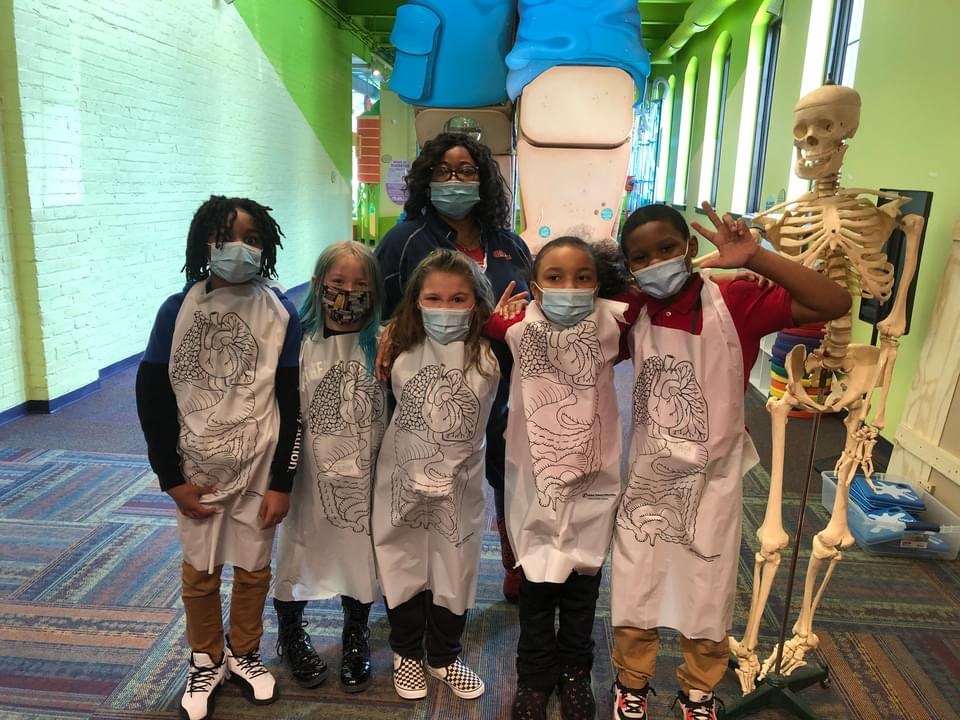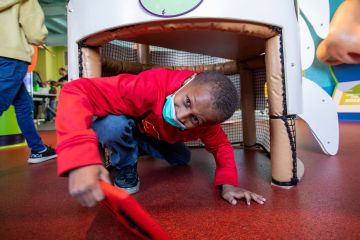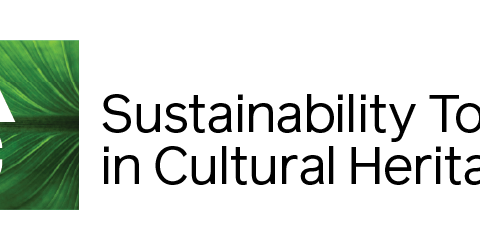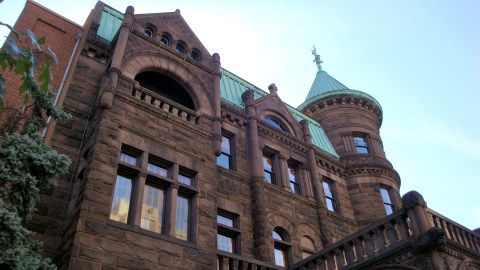
The pandemic was an economic tsunami for museums, particularly those already experiencing financial stress. Relatively new museums, still getting their feet under themselves, were at particular risk. Today on the blog, Karen Ackerman Witter and Leah Wilson tell us how the Kidzeum, in Springfield, Illinois, leaned into the museum’s role as an essential community asset to build its way to financial recovery. Leah was hired as Kidzeum’s first Executive Director a few months before the grand opening in 2018. Karen joined the board in Dec. 2018 and a year later became board chair.
–Elizabeth Merritt, VP Strategic Foresight and Founding Director, Center for the Future of Museums, American Alliance of Museums
In July 2018, after more than a decade in development, the Kidzeum opened in downtown Springfield with a mission to create experiences of learning and discovery through play for children of all backgrounds and abilities. The new organization proved popular with families with young children, but as a small start-up non-profit museum with no government support, we struggled financially. When forced to close our doors due to the pandemic in March 2020, we had no income, no reserves, and no endowment. Funding from the federal Paycheck Protection Program sustained staff for a short period of time, but by July 2020, staff was reduced to only the executive director (Leah), who eventually went part-time. We had been working hard to develop a sustainable business model prior to the pandemic and had reconstituted our board, but a few months after the beginning of the pandemic, bankruptcy became a real possibility.
To meet this challenge, we successfully applied for COVID relief funding and used the time afforded by this funding to explore a partnership with our local school system. (Kidzeum received federal PPP funding, an SBA loan and a state Business Interruption Grant.) We believed that Kidzeum was an underutilized community asset and that we could build a successful business model around the value of that asset. Leah had visited numerous successful museum schools around the country and proposed a similar partnership in Springfield. An AAM article about a successful model in the UK (My Primary School is at the Museum) also inspired her to reach out to Jennifer Gill, superintendent of our local school district.
Gill was already committed to improving elementary school students’ science test scores, which made her very interested in a partnership with Kidzeum. She saw this as an innovative way to enhance science education in early elementary grades and build on existing partnerships to enhance STEM education in middle and high school grades. The Kidzeum proposed creating a museum school, but Springfield already has a highly successful and popular charter school, magnet school and gifted school. From the outset Gill was adamant about not creating another new program that would skim some students away from the other existing elementary schools. She insisted that every student in the targeted grade should have the opportunity to participate, not just a subset of the population.
In response, Leah presented the concept of a STEAM Residency Program in which each second-grade class would spend two weeks at the Kidzeum for an immersive program, using the museum’s space and educational assets. Gill enthusiastically embraced this proposal and made it a high priority. Her leadership was essential in getting the commitment and buy-in from teachers and administrators. Even when faced with the day-to-day crises and pressures of the pandemic, she remained committed to longer-term goals of improving science education in elementary grades. With support from the school district, Kidzeum applied for and received an Inspire grant of nearly $50,000 from the Institute of Museum of Library Services to begin the work. The IMLS grant helped fund one full-time and several part-time education staff, materials, and program evaluation. An additional $65,000 was raised through other local grants and donations which helped pay for administrative and program costs.
Museum staff worked with second grade teachers and school district curriculum specialists and administrators over the summer of 2021 to develop the curriculum, and the program launched in November. For children participating in the immersion program, a typical day begins with a ride on their regular bus to their home school, and from there they are bussed to the Kidzeum for their school day. After they arrive, each public school teacher takes their class to a designated museum classroom. The curriculum takes material they would teach in their home classroom out into Kidzeum’s exhibits and augments learning with content in the museum. Museum staff provide STEAM-based learning sessions that include coding with Unruly Splats (obtained through a KiDs grant Karen was able to secure through the Kappa Delta Sorority Foundation), 3D printing (using a 3D printer donated by a local Rotarian who owns an electronics recycling business) and creating STEAM exhibits on topics such as pollinators, solar energy and the human body. Approximately 1000 students will go through the program by the end of 2022.

The school district pays Kidzeum a fee for each participating student and also supports curriculum development and teacher compensation for extra time spent out of school. The district also pays for busing, lunches and for administrative staff to be on site each day to ensure the smooth operation of the program. Under this new model, the museum is closed to the public during the week, when we function as a school. The business model supports our capacity to serve the public as a traditional children’s museum on weekends, holidays, and during the summer and school breaks.
We’ve come a long way since faced with potential bankruptcy. We have rebuilt our staff to about three-fourths of our pre-pandemic staffing levels. While there are still uncertainties, this Kidzeum/school district partnership has the potential to be a game changer. Businesses, state and local elected officials and community members are enthusiastic about this partnership, resulting in increased opportunities for grants, donations and corporate support.
The Community Foundation for the Land of Lincoln led a community visioning project for Springfield and released a report last April called the Next 10. Reinvention of the Kidzeum was identified as a “promising idea” related to one of the Next 10 priorities – characterized as “an essential component of the educational infrastructure.” We are extremely proud of how Kidzeum has worked tirelessly throughout the pandemic to not just survive but have a meaningful impact in our community. The Kidzeum Board and staff are committed to moving full STEAM ahead.
About the authors
Karen Ackerman Witter served as Kidzeum board chair from Jan. 2020 – June 2021. She was recruited to join the board in Dec. 2018 having served as Associate Director of the Illinois State Museum for 14 years. She retired from the state of Illinois after 35 years working in senior level positions. She is now a freelance writer, active community volunteer and part-time museum consultant. She served on the boards of the Association of Midwest Museums and Illinois Association of Museums for many years and was active with the American Alliance of Museums advocacy initiatives. Contact her at kawitter13@gmail.com.
Leah Wilson has more than 15 years of nonprofit experience, the majority being spent working for museums. She is currently the executive director at Kidzeum of Health and Science in Springfield, IL. She was previously the Vice President at the National Czech & Slovak Museum & Library in Cedar Rapids, Iowa. She has a B.A. in Geography from the University of Northern Iowa and an M.A. in Geography from the University of Iowa. Contact her at Leah.Wilson@kidzeum.org.







